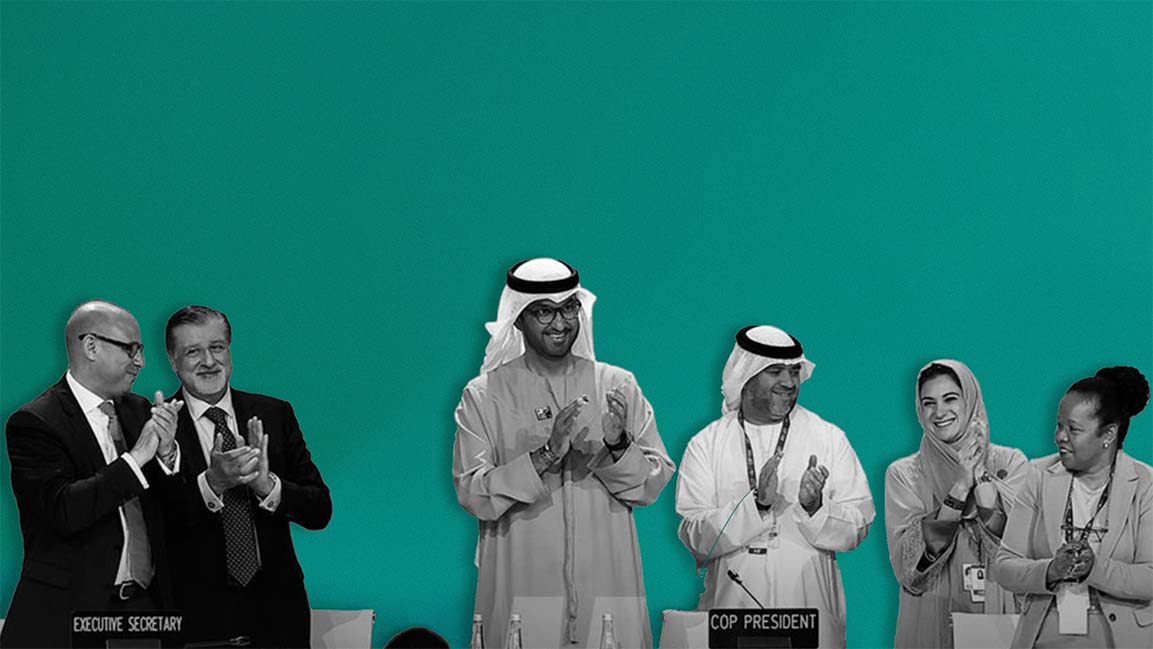- | 3:00 pm
It’s a deal! Nations at COP28 agree to move away from fossil fuels
Even though the deal is “historic," its implementation will be the true deal-breaker, said Sultan Al Jaber, COP28 President-Designate.

Now accepting applications for Fast Company Middle East’s Best Workplaces For Women 2023. Click here to register.
After two weeks of back and forth on either phasing down or completely phasing out fossil fuels, representatives from around 200 nations eventually agreed at COP28 today to begin reducing global consumption of fossil fuels.
This first-of-its-kind deal works to avoid the impacts of climate change and global warming, with a larger aim to push for less reliance on oil.
The new deal had been floated early today after a global rallying cry stronger than proposed days earlier, but with loopholes that upset critics.
The new proposal doesn’t go so far as to seek a “phase-out” of fossil fuels, which more than 100 nations had pleaded for. Instead, it calls for “transitioning away from fossil fuels in energy systems, in a just, orderly and equitable manner, accelerating action in this critical decade.”
That transition would be in a way that gets the world to net zero greenhouse gas emissions in 2050 and follows the dictates of climate science.
Even though the deal is “historic,” its implementation will be the true deal-breaker, said Sultan Al Jaber, COP28 President-Designate.
“We are what we do, not what we say. We must take the steps necessary to turn this agreement into tangible actions,” said Al Jaber.
He received an ovation from delegates and a hug from UN climate chief Simon Stiell.
The deal came after over 100 countries strongly lobbied at COP28 to “phase out” oil, gas, and coal use.
The deal also suggests a tripling of renewable energy globally by 2030, which in turn will reduce the reliance on coal use and calls for advancing technologies, including carbon capture and storage.
António Guterres, the UN secretary general, tweeted after the deal was agreed: “Whether you like it or not, fossil fuel phase-out is inevitable. Let’s hope it doesn’t come too late.”































